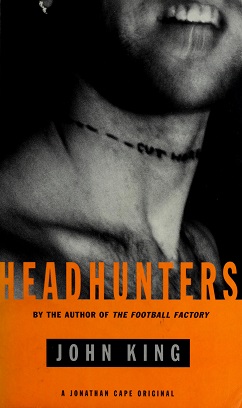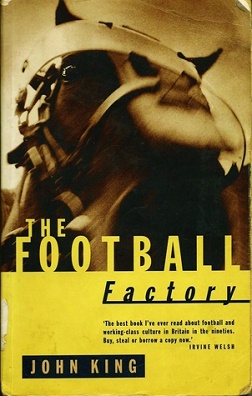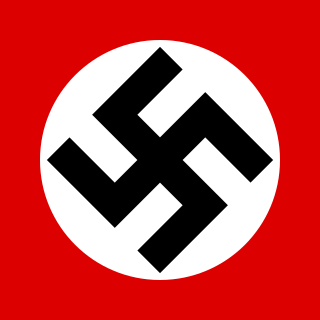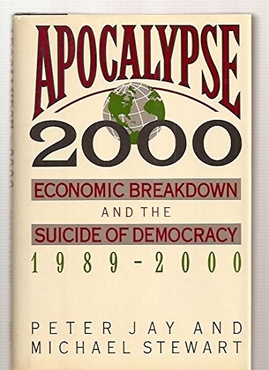Representative democracy, electoral democracy or indirect democracy is a type of democracy where representatives are elected by the public. Nearly all modern Western-style democracies function as some type of representative democracy: for example, the United Kingdom, Germany, France, and the United States. This is different from direct democracy, where the public votes directly on laws or policies, rather than representatives.

It Can't Happen Here is a 1935 dystopian political novel by American author Sinclair Lewis. Set in a fictionalized version of the 1930s United States, it follows an American politician, Berzelius "Buzz" Windrip, who quickly rises to power to become the country's first outright dictator, and Doremus Jessup, a newspaper editor who sees Windrip's fascist policies for what they are ahead of time and who becomes Windrip's most ardent critic. The novel was adapted into a play by Lewis and John C. Moffitt in 1936.

The iron law of oligarchy is a political theory first developed by the German-born Italian sociologist Robert Michels in his 1911 book Political Parties. It asserts that rule by an elite, or oligarchy, is inevitable as an "iron law" within any democratic organization as part of the "tactical and technical necessities" of the organization.

The association of Nazism with occultism occurs in a wide range of theories, speculation, and research into the origins of Nazism and into Nazism's possible relationship with various occult traditions. Such ideas have flourished as a part of popular culture since at least the early 1940s, and gained renewed popularity starting in the 1960s.
The term "illiberal democracy" describes a governing system that hides its "nondemocratic practices behind formally democratic institutions and procedures". There is a lack of consensus among experts about the exact definition of illiberal democracy or whether it even exists.
Literary fiction, mainstream fiction, non-genre fiction, serious fiction, high literature, artistic literature, and sometimes just literature, are labels that, in the book trade, refer to market novels that do not fit neatly into an established genre ; or, otherwise, refer to novels that are character-driven rather than plot-driven, examine the human condition, use language in an experimental or poetic fashion, or are simply considered serious art.

Andrew Roberts, Baron Roberts of Belgravia,, is an English popular historian, journalist and member of the House of Lords. He is the Roger and Martha Mertz Visiting Research Fellow in the Hoover Institution in Stanford University and a Lehrman Institute Distinguished Lecturer in the New York Historical Society. He was a trustee of the National Portrait Gallery from 2013 to 2021.
The Fourth Reich is a hypothetical Nazi Reich that is the successor to Adolf Hitler's Third Reich (1933–1945). The term has been used to refer to the possible resurgence of Nazi ideas, as well as pejoratively by political opponents.

Civic virtue is the cultivation of habits important for the success of a society. Closely linked to the concept of citizenship, civic virtue is often conceived as the dedication of citizens to the common welfare of each other even at the cost of their individual interests. The identification of the character traits that constitute civic virtue has been a major concern of political philosophy. The term civility refers to behavior between persons and groups that conforms to a social mode, as itself being a foundation of society and law.
Sonderweg refers to the theory in German historiography that considers the German-speaking lands or the country of Germany itself to have followed a course from aristocracy to democracy unlike any other in Europe.
John King is an English writer best known for his novels which mostly deal in the more rebellious elements driving the country's culture. His stories carry strong social and political undercurrents, and his work has been widely translated abroad. He has written articles and reviews for alternative and mainstream publications, edits the fiction journal Verbal, and is the co-owner of the London Books publishing house.

Headhunters is the second novel by English author John King. Along with The Football Factory and England Away, it comprises The Football Factory Trilogy, a series that challenges the official position on subjects such as class, racism, sexism, and patriotism in the UK. First published in 1997 by Jonathan Cape and subsequently by Vintage, it has been widely translated abroad. The US edition (2016) includes an introduction by King—"In England's Fair City"—and the following quote by author Michael Moorcock: "John King is the authentic voice of contemporary London".
The non-fiction novel is a literary genre that, broadly speaking, depicts non-fictional elements, such as real historical figures and actual events, woven together with fictitious conversations and uses the storytelling techniques of fiction. The non-fiction novel is an otherwise loosely defined and flexible genre. The genre is sometimes referred to using the slang term "faction", a portmanteau of the words fact and fiction.

Liberal democracy, western-style democracy, or substantive democracy is a form of government that combines the organization of a democracy with ideas of liberal political philosophy.
Pierre Stephen Robert Payne was an English-born author, known principally for works of biography and history, although he also wrote novels, poetry, magazine articles and many other works. After working in Singapore and China, he moved to the United States in 1946 and became a professor of English literature. From 1954 onwards he lived as a writer in New York.

The Football Factory is the controversial debut novel by English author John King, and is based around the adventures of a group of working-class Londoners who follow Chelsea home and away, fighting their rivals on the streets of England's cities.

A dystopia, also called a cacotopia or anti-utopia, is a community or society that is extremely bad or frightening. It is often treated as an antonym of utopia, a term that was coined by Sir Thomas More and figures as the title of his best known work, published in 1516, which created a blueprint for an ideal society with minimal crime, violence, and poverty. The relationship between utopia and dystopia is in actuality, not one of simple opposition, as many dystopias claim to be utopias and vice versa.

Nazism, formally National Socialism, is the far-right totalitarian socio-political ideology and practices associated with Adolf Hitler and the Nazi Party (NSDAP) in Germany. During Hitler's rise to power in 1930s Europe, it was frequently referred to as Hitler Fascism and Hitlerism. The later related term "neo-Nazism" is applied to other far-right groups with similar ideas which formed after the Second World War when the Third Reich collapsed.

England Away is the third novel by John King, first published by Jonathan Cape in 1998 and subsequently by Vintage. The final part of The Football Factory Trilogy, it follows characters from The Football Factory and Headhunters as they come together and head into Europe for an England football match against Germany in Berlin.

Apocalypse 2000: Economic Breakdown and the Suicide of Democracy is a 1987 novel by English economists Peter Jay and Michael Stewart.












